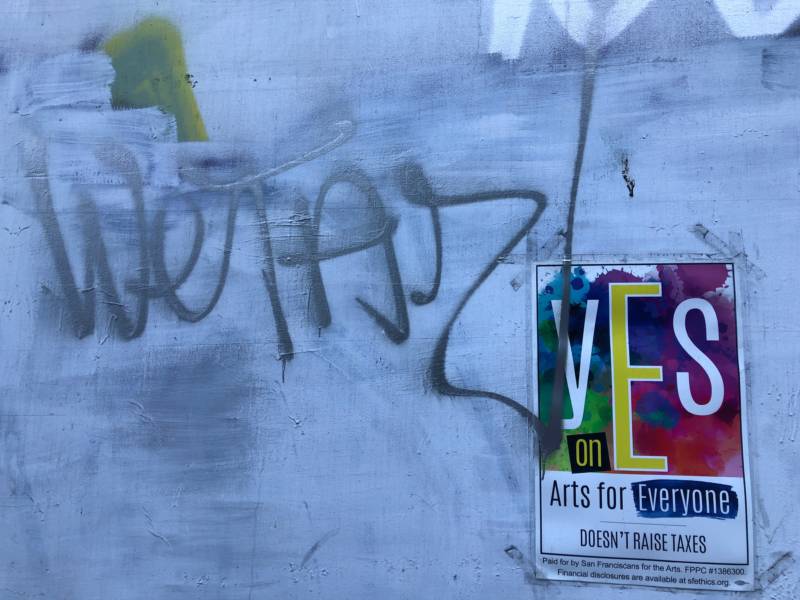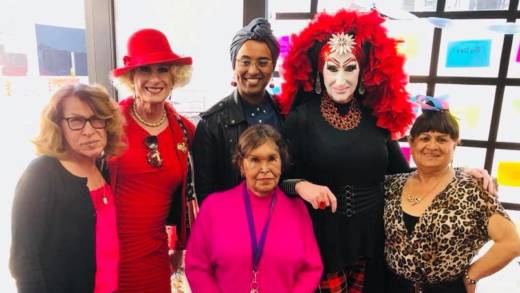San Francisco voters have overwhelmingly come out in support of a measure that will boost the city's arts and culture scene. Artists and arts organizations are among those that have suffered at the hands of gentrification and the skyrocketing rents in San Francisco in recent decades.
But a sweeping three-quarters of voters approved Proposition E, which seeks to dedicate 1.5 percent of the base hotel tax — a 14 percent tax levied on hotel stays in the city — to support arts and culture programs. The city estimates this could add more than $15 million in funding over the next two years.

"San Francisco voters have clearly spoken and said that keeping artists in our city and keeping our neighborhoods unique and special are important investments for public dollars," said San Francisco's director of cultural affairs, Tom DeCaigny.
The cash injection will support a number of existing and new initiatives. These include providing operating support to nonprofit arts groups of all budget sizes, increasing funding to the city's cultural equity endowment, and allocating funding for the first time to the city's cultural districts.
"I am incredibly excited to finally have funding for the Compton
Transgender Cultural District," said Honey Mahogany, a San Francisco drag performer, queer rights activist and executive director of the district, one of a growing number of areas in the city to have received official designation as locations of distinct cultural identity and importance.
"What this really does is it helps build capacity for cultural districts by guaranteeing a stable source of funding so that the core needs of the district can be met: The rent can be paid, staff can be hired and the work of the district can truly begin."
Proposition E isn't a brand-new piece of legislation. Rather, it restores an allocation originally created in 1961 to support the city’s cultural industries. The move turned San Francisco into an arts and culture-funding trailblazer for several decades.
But starting in the early 2000s, owing to financial issues, the city gradually reduced the hotel tax funding allocation for the arts, ultimately repealing specific allocations altogether in 2013.
A couple of years ago, a coalition of more than 30 arts and homeless service organizations came together to try to restore the hotel tax funding allocation in a joint measure. But that bid — Proposition S — failed to attract the necessary support from voters in the November 2016 election.
This election, more than 100 cultural organizations across the city of all scopes and sizes united to spread the word about Proposition E. And unlike Proposition S, the new measure garnered the support of the city's entire Board of Supervisors.

